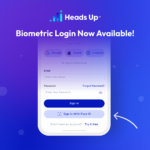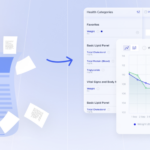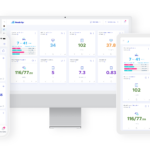Improving client retention and reducing attrition is a cornerstone of a successful practice in virtually any healthcare environment. Focusing on life time value (LTV) and facilitating client retention is one of the most powerful tools for building long term sustainability, particularly in the functional medicine space due to your unique business model needs.
Focusing on client retention is the best way to maximize lead generation and marketing efforts. With LTV calculated by multiplying the average value of the customer to the business by their average lifespan, it becomes far more cost effective to keep existing customers in your practice than to attract new ones. By fostering a long term relationship with your clients, you have the opportunity to achieve better health outcomes over time. Supporting clients long term helps ensure patient satisfaction and longevity for your practice.
But in a world where practitioners and clinics are often stretched thin, what is the best way to retain clients over time? Of course, providing excellent service is essential, but an often overlooked LTV strategy is facilitating patient engagement. Building engaged patients leads to better treatment outcomes, improved quality of care over their lifetime, and more a successful healthcare practice.

Patient engagement refers to involving patients in as many aspects of their own care as possible. The goal is to empower clients with knowledge and give them the tools to reach their health goals. Fortunately, the proliferation of wearable health technology and the unprecedented growth in telehealth now makes this easier than ever before and there is no better time than now to engage patients remotely.
Here are some strategies for fostering increased patient engagement and empowering patients along their health journey:
1- Focus on communication points between practitioner and patient
Like all relationships, the practitioner-patient connection must be nurtured to thrive. All too often, patients reach out to care providers only during an acute episode or the onset of a chronic or life-altering illness when urgent attention is needed. However, developing a system of communication that emphasizes proactive wellness builds engaged clients and a robust relationship that leads to long term patient retention.
While lack of communication can lead to patient indifference, ongoing contact helps to keep patients engaged and forward thinking about their health. In addition to ongoing communication regarding appointments, upcoming treatments, and wellness reminders, providing personalized, proactive outreach gives patients a meaningful connection to care providers. Providing patients with relevant health information makes clients feel acknowledged, giving them the sense that they can connect with their care providers openly, even outside a time of crisis.

2- Support patients over the lifetime of their health journey
With wellness at the forefront of people’s mind, perhaps more now than ever in light of the COVID-19 pandemic, supporting patients in times of health, as well as times of illness is increasingly relevant for client retention. It is all too common that patient relationships come to the forefront only in the face of an acute episode or chronic illness. However, developing a proactive wellness strategy with healthy clients leads to a robust lifetime relationship.
Giving clients support through their health journey extends beyond treating symptoms and writing prescriptions. Supporting patients in a time of illness is essential, of course. However, beyond the reversal of chronic conditions, supporting patients through health maintenance and working towards health optimization, truly builds a long term relationship.

Cultivating relationships prior to an illness builds patient loyalty from the ground up. Having a strong relationship with clients when things are going well lets clients know they have you as an immediate ally if an issue should arise.
3- Empower clients to engage with their own health data
Contrary to the popular belief that wellness is in the hands of care providers, health is ultimately in the hands of the patient. With that in mind, there is no better client retention strategy than to empower your patients with access to their own health data. From the perspective of the practitioner, this means giving patients the tools to understand their data, sharing relevant knowledge, and maintaining an ongoing dialogue with the patient.
To encourage consumers to have more agency in making decisions about their health, data needs to be transparent and actionable for the client. With more consumers using technology for health monitoring than ever before, both patients and practitioners have access to a host of real time data, generated by the patient and accessible by both the client and care provider.

The ultimate goal for both practitioners and patients is self-management, which both reduces costs and fosters a lifetime of wellness. Educating patients cultivates their curiosity and spurs engagement with their own health journey. Data becomes the tool for empowerment and connecting patients with their metrics gives them the opportunity to truly take their health into their own hands.
Read More: Data-Driven Clinic, Podium Sports Medicine, Supports High Performance Athletes Remotely with Heads Up
Heads Up Health is one such solution that displays data for clear interpretation for both providers and clients. Data from health and wellness devices is elegantly showcased on the client-facing dashboard, making it easy for clients to monitor their own progress. The Heads Up practitioner portal allows for real-time access to health metrics from clients and serves as the touchpoint for communication for telemedicine practices and remote health coaches alike. Heads Up puts data in context, giving providers the tool they need to amplify patient engagement for a lifetime of wellness.
Conclusions
By improving the patient experience and clinician workflow, you will increase LTV and improve client retention. Satisfied patients generally stick with their current healthcare provider for longer and client retention is one of the most powerful tools for building long term sustainability for healthcare practices.
Facilitating patient engagement through open communication, lifetime support, and the use of data leads to better treatment outcomes, improved quality of care, and a more successful healthcare practice. With patients involved in as many aspects of their own care as possible, engaged clients become empowered clients who tend to stick with their care providers long term.
About Heads Up
Heads Up Health is a seed-stage technology company based in Scottsdale, AZ. They are engineering an entirely new approach to personalized health by integrating clinical, lifestyle, nutritional, and self-collected data with personalized analytics and insights.



















